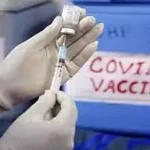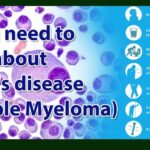Roche diagnostics launches quantitative test to measure antibody levels against SARS-CoV-2
Key highlights
- The Elecsys Anti-SARS-CoV-2 S quantifies immune response in an individual and determines the exposure status to SARS-CoV 2
- The test targets antibodies against the spike protein and plays an important part in characterising a vaccine-induced immune response 1
- Moderna’s mRNA vaccine trials includes Elecsys Anti-SARS-CoV-2 S test to assess the correlation between protection from vaccination and antibody levels
- The Elecsys Anti-SARS-CoV-2 S assay has an excellent correlation with the WHO International Standard.2


Mumbai: Friday, 22 January 2021: Roche Diagnostics India announced the launch of its antibody test SARS-CoV-2 test – Elecsys Anti-SARS-CoV-2 S. The test is CE IVD approved and has received ICMR and CDSCO approval in India. It is an in vitro test, that quantifies antibodies against the receptor-binding domain (RBD) of spike (S) protein SARS-CoV-2 in human serum and plasma, and determines the body’s immune response to the virus.
The Elecsys Anti-SARS-CoV-2 S targets antibodies, which are directed against the particular region of the viral spike protein responsible for binding to the host cell receptor, which is required for the virus to enter the host cell.3 The majority of current vaccines (approved and in development) aim to induce antibody response against the viral spike protein.
Narendra Varde, Managing Director – Roche Diagnostics India, said, “Roche is firmly committed to providing reliable, high-quality testing solutions to help the country deal with the pandemic. The newest antibody solution, Elecsys Anti-SARS-CoV-2 S, will not only give a ‘positive’ or ‘negative’ result, but also will provide a numerical result to indicate the concentration of SARS-CoV-2 specific antibodies in the blood, further supporting the healthcare systems and patients as we jointly fight COVID-19.”
Dr. Sandeep Sewlikar, Head of Medical & Scientific Affairs – Roche Diagnostics India, pointed out the need for an antibody test for India by stating: “The test has both a high clinical specificity of 99.98% (N=5991) and sensitivity of 98.8% (N=1423), 14 days or later after diagnosis with PCR. The result is provided in the form of an antibody concentration (U/mL). The units of the Elecsys Anti-SARS-CoV-2 S assay have an excellent correlation with and can be considered equivalent to the units of the WHO International Standard.2”
In vaccine trials, before a vaccine is administered it would be beneficial to know the starting level of antibodies a person has, in order to evaluate any change in antibody levels that the vaccine induces, especially the development of antibodies directed against the SARS-CoV-2 spike protein. These antibodies have been shown to have potent antiviral activity and correlate to potential immunity.4
Globally, Roche Diagnostics partnered with Moderna, to utilise the Elecsys Anti-SARS-CoV-2 S antibody test in the mRNA-1273 vaccine research trials. The test will help Moderna establish a correlation between vaccine-induced protection and levels of antibodies.
Alongside its importance to vaccine efficacy evaluations, the Elecsys Anti-SARS-CoV-2 S serology test can be used to determine antibody levels in plasmapheresis donations and for estimating seroprevalence.
The Elecsys Anti-SARS-CoV-2 S immunoassay runs on Roche’s widely available cobase analysers, and these fully automated systems can provide SARS-Cov-2 test results in approximately 18 minutes for one test, with a test throughput of up to 300 tests/hour, depending on the analyser.5 The test is the latest addition to the comprehensive Roche diagnostic molecular and serology portfolio to help healthcare systems combat COVID-19.
References
- Zhu FC et al. (2020). The Lancet 396:479 – 4882)
- Roche data on file
- Hoffmann, Markus et al. (2020). Cell. 81(2):271-280.e8;
- Masters PS (2006). The molecular biology of coronaviruses. Advances in Virus Research. Academic Press. 66: 193–292;
- Full specifications of the Roche immunoassay systems, including throughput, can be found on our diagnostics. roche website













